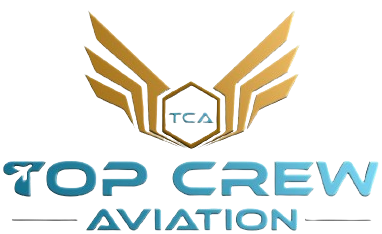
If you have ever dreamed of becoming a commercial pilot in India, chances are you’ve come across the term DGCA CPL Ground Classes. For beginners, this can feel overwhelming. What exactly are these classes? Why are they important? And how do they fit into the journey of becoming a pilot?
This comprehensive beginner’s guide will answer all these questions in simple yet detailed language, ensuring you have a clear roadmap from the very start.
What Does DGCA CPL Mean?
Before we dive into ground classes, let’s clear up the basics.
- DGCA stands for Directorate General of Civil Aviation. It is the regulatory authority that oversees civil aviation in India.
- CPL stands for Commercial Pilot License. This is the license that legally allows you to work as a professional pilot.
Therefore, when we say DGCA CPL Ground Classes, we are talking about the classroom-based training that prepares you for DGCA’s mandatory theory examinations. Passing these exams is a prerequisite for obtaining a CPL in India.
What are DGCA CPL Ground Classes?
DGCA CPL Ground classes are structured lessons conducted by qualified instructors. They are designed to help aspiring pilots learn the theoretical subjects required to pass the DGCA exams.
The main subjects covered in CPL ground classes include:
- Air Regulations – Indian and international aviation rules, DGCA requirements, ICAO standards.
- Aviation Meteorology – Weather theory, forecasts, and their impact on flight.
- Air Navigation – Route planning, chart reading, radio navigation aids, and fuel calculations.
- Technical General (Aircraft & Engines) – Aerodynamics, aircraft systems, propulsion, and mechanics.
- RTR (Aero) – Restricted Radio Telephony exam preparation, focusing on communication procedures.
In short, ground classes provide the theoretical foundation of aviation, without which flying training alone is not enough.
Why are Ground Classes Important?
A common beginner’s question is: Can I skip ground classes and study on my own?
While self-study is technically possible, ground classes are important for the following reasons:
- Exam-Focused Training
- DGCA exams have a specific pattern. Classes ensure you prepare in line with DGCA expectations, reducing wasted effort.
- Expert Guidance
- Instructors, often ex-pilots or aviation experts, bring clarity to complex topics.
- Accountability and Support
- Regular classes keep you consistent and motivated, with opportunities to clear doubts.
- Efficient Use of Time
- The syllabus is vast. Structured classes allow you to learn faster and with more focus.
For most students, joining ground classes significantly improves the chances of clearing DGCA exams on the first attempt.
DGCA CPL Ground Class Syllabus
Here is a subject-wise breakdown of what you will study during ground classes:
- Air Regulations
- ICAO conventions and standards
- Indian Civil Aviation Rules and Civil Aviation Requirements (CARs)
- Airspace classifications
- Air Traffic Control procedures
- Aviation Meteorology
- Basic weather theory
- Pressure systems and wind patterns
- Cloud formations, thunderstorms, turbulence
- Understanding aviation weather reports such as METARs, TAFs, and SIGMETs
- Air Navigation
- Principles of navigation
- Use of charts and maps
- Time zones and related calculations
- Radio navigation aids including VOR, DME, ADF, and GPS
- Flight planning and fuel estimation
- Technical General
- Aircraft structures and design
- Engines, both piston and turbine
- Aerodynamics and flight performance
- Electrical, hydraulic, and fuel systems
- RTR (Aero) [Separate but Taught Alongside]
- Radio communication procedures and phraseology
- Distress and urgency communication
- Oral test preparation with mock sessions
Duration of DGCA CPL Ground Classes
The time required to complete ground classes varies depending on the institute and the student’s pace.
- Fast-Track Courses – 3 to 4 months, intensive schedule.
- Regular Courses – 6 to 8 months, more balanced.
- Modular Classes – Subject-wise batches with flexible schedules.
On average, students spend 4 to 6 months in ground classes before attempting DGCA exams.
How to Choose the Right DGCA Ground School
Not every institute offers the same quality of training. When selecting a ground school, consider:
- Success Rate – Check past student performance in DGCA exams.
- Faculty Background – Look for instructors with professional aviation experience.
- Batch Size – Smaller batches allow for more interaction and doubt resolution.
- Study Material – Ensure the institute provides updated notes, mock tests, and question banks.
- Flexibility – Some schools now offer online or hybrid learning options.
Cost of DGCA CPL Ground Classes in India
Ground class fees typically range between ₹1.5 lakh and ₹3 lakh.
The cost depends on:
- The reputation of the institute
- The format of the course (offline, online, or hybrid)
- Whether you enroll for all subjects together or one at a time
While the fees may seem high, think of it as an investment. Passing exams quickly reduces long-term costs.
DGCA CPL Exams: Key Information
- Eligibility: Minimum Class 12 with Physics and Mathematics.
- Passing Marks: 70 percent in each subject (RTR is pass/fail).
- Frequency: DGCA conducts exams four times a year.
- Validity: Once passed, results are valid for five years for license application.
Self-Study vs. Joining Ground Classes
Here’s a simple comparison to help you decide:
| Factor | Self-Study | Ground Classes |
|---|---|---|
| Access to study material | Limited | Comprehensive |
| Doubt resolution | Minimal | Regular support |
| Success rate | Lower | Higher |
| Cost | Lower | Higher |
| Time efficiency | Slower | Faster |
Self-study may work for highly disciplined students, but ground classes generally provide better results.
Career Path After DGCA CPL Ground Classes
Here is the typical progression for aspiring pilots:
- Enroll in ground classes and complete theoretical training.
- Clear DGCA theory exams.
- Begin flying training in India or abroad.
- Accumulate at least 200 flying hours.
- Apply for a CPL through DGCA.
- Pursue airline selection processes or type-rating courses.
Ground classes are the very first building block in this journey.
Pro Tips for Beginners
- Start ground classes early, even before joining a flying school.
- Do not underestimate Air Regulations, a subject many students overlook.
- Regular revision is essential. Consistency matters more than last-minute cramming.
- Use DGCA’s official sample papers to practice.
- Engage with peer groups or forums for motivation and resource sharing.
Final Thoughts
DGCA CPL Ground Classes are the backbone of your journey to becoming a professional pilot. They prepare you for the theoretical exams that are essential to obtain your CPL in India. Whether you study in India or abroad, clearing DGCA exams is non-negotiable if you want to work in Indian aviation.
By enrolling in a reputable ground school, you set yourself up for success. You will not only save time and money by passing exams early but also begin your flying training with a solid foundation of knowledge.
If you are a beginner wondering where to start, the answer is clear: start with DGCA CPL ground classes.
Frequently Asked Questions
Are DGCA CPL ground classes mandatory?
They are not legally mandatory, but in practice, almost all students benefit from them.
Can I attend ground classes online?
Yes. Several reputed schools now offer online ground classes through live and recorded sessions.
How many attempts do I get for DGCA exams?
There is no limit, but multiple attempts cost both time and money. Clearing in one or two attempts is advisable.
Should I do ground classes before or after flying training?
Ideally before. Clearing DGCA exams in advance allows you to focus entirely on flying during training.
Is English proficiency required?
Yes. Exams, communication, and RTR tests are all conducted in English.
What if I fail a subject?
You can reattempt the exam in the next cycle, but it will delay your progress.



